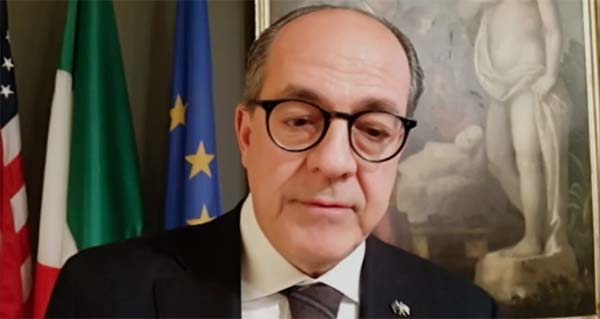
The landmark trade agreement between the United States and Asia-Pacific has lent rare momentum to negotiations between the US and the European Union for an unprecedented Transatlantic Trade and Investment Partnership (TTIP), said European Parliament member and former Italian minister, Paolo De Castro. But a win-win compromise will be necessary to remove a thorn from the side of negotiators — the recognition of EU’s geographical names (GIs) by the US, which accepts GIs as a subset of trademarks and does not certifies “generic” terms as fontina and parmigiano cheese and hopefully clinch a deal before the US elections in 2016.
“Because of the Trans-Pacific Partnership, there is momentum to find a solution. But there is no chance to have a TTIP agreement without achieving some results in geographical indications,” De Castro, who is Rapporteur on Agriculture sector in the TTIP talks, told Italian Food at a conference on November 5 at the Embassy of Italy in Washington, DC. “It’s in our mutual interest to find a win-win solution.”
De Castro, who also met with US trade representative for agriculture Sharon Bomer Lauritsen, acknowledged that the talks “are moving” and called for a solution that helps American consumers clearly understand the origin of a product without misleading labelling.
“If we want to finish the negotiations before the end of the current US administration, now it’s the time to make steps ahead and conclude a deal,” he said.
The EU’s 28 countries and the US account together for about one third of world trade, and proponents say more growth can be unleashed on both sides of the Atlantic if tariffs (currently lower in the US than in the EU) and non-tariff barriers are either removed or harmonized under the TTIP.
A full phasing out of tariffs and a 25% reduction in non-tariff measures would generate additional transatlantic trade by around 40%, according to a 2014 EU study. Reducing barriers would have an even stronger impact on the protected agro-food sector, with EU exports to the US increasing by about 60% and EU imports from the US by about 120% up to 2025.
“Today it’s not the time to underline our differences, but to say that this agreement cannot exist unless we recognize why we need to protect these products,” De Castro said.
Agriculture accounts for a fraction of $700 billion bilateral trade, but it draws strong attention from consumers, producers and governments proud of their hams and cheeses.
A divisive issue is what Castro called “the power of the flag”, or the country of origin labels used to certify a genuine product, but often copied to mislead shoppers like in a case shown at the conference of the “Parma Jamon Serrano”, made in Mexico.
A solution is however possible, according to the participants in the conference.
One example comes from the consortium of the Prosciutto di Parma which, as part of the EU-Canada bilateral trade deal , accepted that “Parma Ham” products made in Canada be sold along with its renowned, crown-logoed prosciuttos since the English name was already a registered trademark in the North American country.
“I don’t think this is a simple language problem. It’s time to realize that we have different systems and different feelings but we are discussing about economic facts and we need to take them into great account,” said Emilio Gatto, general director for GIs at the Italian Ministry of Agriculture.
By Antonella Ciancio from Washington DC
Paolo De Castro, European Parliament Member from Gruppo Food on Vimeo.
